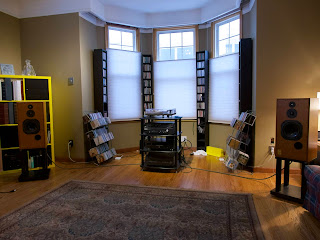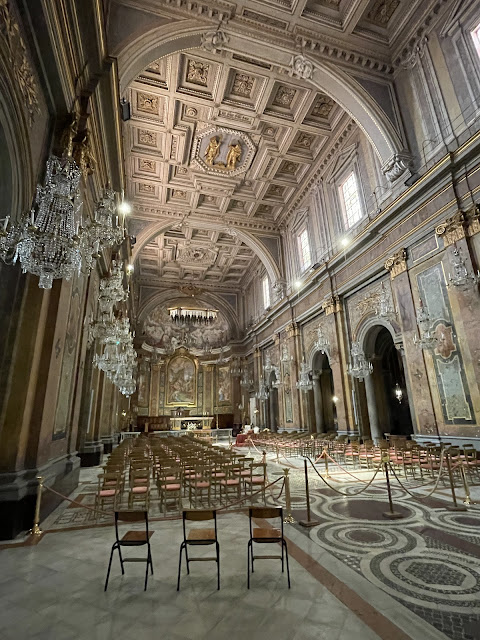Easter 2012
 Good Friday saw me take part in a traditional procession through the streets with an effigy of Christ figuratively taking him to the tomb. On Holy Saturday I concelebrated at the Easter Vigil and on Easter Sunday I helped out at a suburban parish with large crowds and parking lot ballet.
Good Friday saw me take part in a traditional procession through the streets with an effigy of Christ figuratively taking him to the tomb. On Holy Saturday I concelebrated at the Easter Vigil and on Easter Sunday I helped out at a suburban parish with large crowds and parking lot ballet.The Good Friday procession included a band playing some rather solemn music. When we think of music being kinetic we usually think of dancing or if you're in the army, marching. This is something a little different. It is a kind of a march, but not nearly so disciplined. There is something about physically moving together that seems almost automatically to put inside you the nature of the shared activity. In this case, something profound certainly was happening. Christ really died and we could well have been there and we were physically showing that we wanted to be with Christ in His death. Too often when we talk or write about religion it is in our heads and less in our hearts or expressed with our feet for that matter. Having an incarnate faith it is good to express it in the flesh. And the music did contribute to the whole of the proceedings.

At the Vigil the pastor did a credible job of chanting the Exsultet, the Easter proclamation. And on Easter Sunday morning Masses were crowded and the music definitely festive.
In theory, the singing, bell-ringing and generally festive behaviour should continue for eight days as each weekday of Easter is a continuation of Sunday. It was St. Augustine who observed that Christ rose on the eighth day, making the octave always an important number in Christian celebrations.

